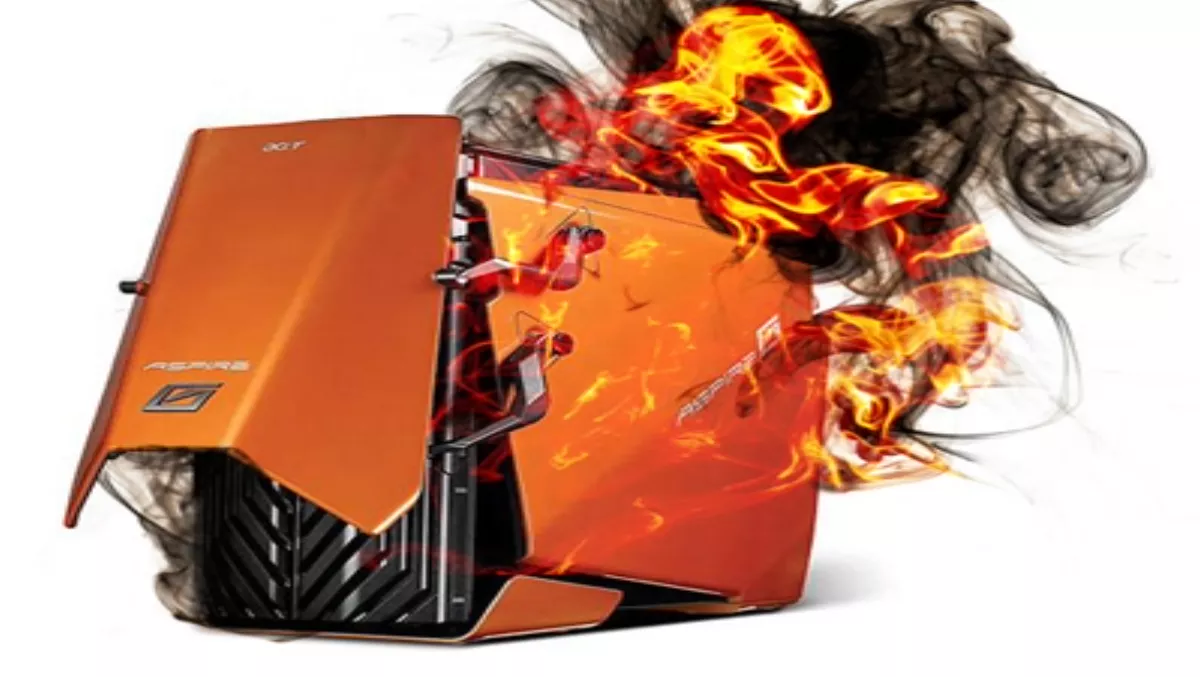
How to stop your computer from overheating
Perhaps you’re running a particularly resource- hungry game when the screen suddenly goes black without warning. Or maybe your computer is just running slower than usual and you are beginning to feel frustrated.Sluggish performance, unexpected shutdowns, as well as other strange phenomena, are often the result of internal overheating. All computers will let off some heat (they are made up of moving parts, after all), but excessive heat is going to cause problems for any computer eventually. How hot is too hot? As a general rule of thumb, if your PC is fairly warm to the touch then it’s getting too hot. So what should you do if you suspect that your PC or laptop is getting a little hot and bothered?Before you do anything, make sure that your computer is well ventilated. This goes for inside and outside of the box. Perform a visual check to make sure that all fans are running and that exhaust vents are unobstructed. Everything working fine? Then it’s time to take more drastic measures.OPTION 1: If possible, operate your computer in a cool room. If this is not an option, place the computer on the floor - it’s cooler down there than on a desk. Also, if air conditioning is nearby, place your computer next to the vent. OPTION 2: Upgrade your CPU fan. The CPU is the most sensitive part of your computer and the most prone to getting hot. Protect it with a more powerful, custom-install fan. Likewise, consider installing a case fan (or two) in your computer. If it keeps cool air coming in and warm air going out, it’s going to have a positive effect on internal temperatures.OPTION 3: If you want to get really fancy, try a water cooling kit. A water cooling kit will safely cycle water around the CPU, drawing heat away during heavy use.OPTION 4: Add more RAM. This will cut down on your CPU’s workload and lower the overall temperature. OPTION 5: If it’s a laptop that’s causing you problems, consider buying a laptop cooling pad. This will keep your laptop (and perhaps your lap) cool during intensive computing sessions.OPTION 6: If none of the above has an effect, your computer is probably clogged with dust and that means it needs to be cleaned. If you’re game (and are fearless when it comes to your warranty), here’s a great tutorial from Lifehacker on how to do it: tinyurl.com/fightdustOPTION 7: If the thought of opening your hard drive with a screwdriver gives you a sinking feeling in your stomach, it might be time to call the experts. Someone like www.geeksonwheels.co.nz is a good place to start. OPTION 8: An ounce of prevention is worth a pound of cure, they say. There are plenty of programs out there that will tell you when your PC is getting too hot. Here’s a selection of the best free ones:CrystalDiskInfo 3.9.1 Freeware CrystalDiskInfo is an HDD health monitoring utility. It displays basic HDD information, monitors S.M.A.R.T. values and disk temperature. tinyurl.com/35yoh2hAmn Refrigerator 3.2 Freeware Amn Refrigerator is designed to halt the work of the CPU during idle times in operating system Windows 9x and ME. tinyurl.com/2f4wflcSpeedFan 4.41 Freeware SpeedFan is a program that monitors voltages, fan speeds and temperatures in computers with hardware monitor chips. SpeedFan can even access S.M.A.R.T. info and show hard disk temperatures. tinyurl.com/2g8znq8

